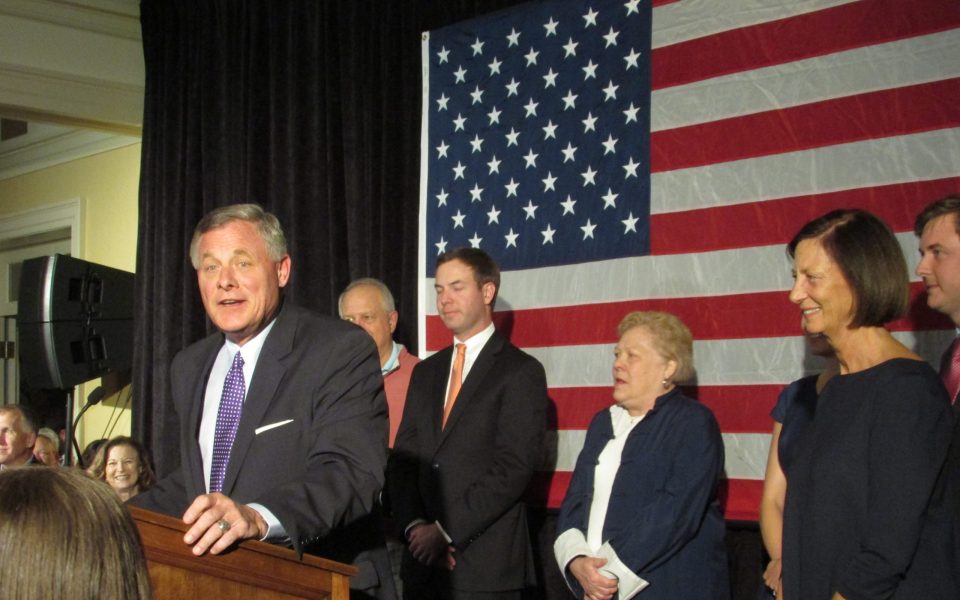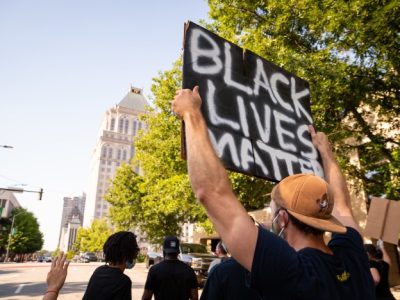If the legislative branch produces any heroes in the effort to uncover the truth about President Trump’s possible collusion with Russia in undermining the US election and assisting a foreign adversary, they will likely not be progressive icons like Sens. Elizabeth Warren or Bernie Sanders.
No, it’s members of Trump’s own party, who hold control of Congress, who have the opportunity to answer the call of history, including influential and independent lawmakers like Sens. John McCain (R-Ariz.) and Lindsey Graham (R-SC), or maybe FBI Director James Comey. But most political observers see the Senate Intelligence Committee, chaired by North Carolina Republican Sen. Richard Burr, as the primary driver of an investigation into the matter. How Burr handles this monumental responsibility will ultimately determine whether history judges him to be a patriot or a partisan.
Burr has been keeping a low profile lately, and like many of his GOP colleagues has decided to duck public appearances during the Congressional break. In addition to Burr’s key role in holding the president accountable, constituents are eager to talk to their senator about the fate of the Affordable Care Act. Over the weekend, as the Journal reported, someone chalked the parking lot behind Burr’s Winston-Salem office with the message: “Senator Burr, time to town-hall.”
Meanwhile, a spokesperson declined an interview request from Triad City Beat, noting that Burr is “traveling this week in his intel committee capacity.”
Let’s review the extraordinary events of the previous week.
On Monday, National Security Advisor Michael Flynn resigned, following revelations that he had misled Vice President Pence about the nature of a pre-inauguration phone call with Russian ambassador Sergey Kislyak. Pressure for Flynn’s resignation had been building in the wake of a report from the Washington Post that Flynn had talked to Kislyak about US sanctions with Russia, which, if true, would have violated the Logan Act, prohibiting interference in foreign diplomacy by non-governmental officials.
Only one day after Flynn’s resignation, on Tuesday, the New York Times reported that the Trump campaign had repeated contacts with Russian intelligence officials in the 12 months leading up to the election.
The following Friday, Burr and other members of the Senate Intelligence Committee met in a secure room for a three-hour discussion with FBI Director Comey. Senators leaving the meeting evaded questions about the details of the discussion, with Burr calling it “just a normal classified briefing,” according to The Hill. Then, Burr and Sen. Mark Warner of Virginia, the ranking Democratic member, sent out letters to federal agencies asking them to preserve all materials that could potentially tie into the intelligence committee’s investigation into Russian interference in the election.
It remains unclear whether the investigation led by Burr will be narrowly focused on Russian malfeasance in the election or will also explore Trump’s possible collusion with Russia and the extent that it might rise to the level of treason.
Consider the timeline:
• Flynn, who recently resigned as national security advisor, sat next to Russian President Vladimir Putin at a dinner in Moscow in December 2015 to celebrate Russia Today’s 10th anniversary, according to a report published by Mother Jones.
• Also in December 2015, then-candidate Trump declared that it was “a great honor” to be complimented by Putin.
• Throughout the campaign, Trump said he would consider lifting sanctions against Moscow and recognizing Russia’s annexation of Crimea, while warning that his commitment to defending the Baltic states against aggression from Russia would hinge on whether they met their financial commitments to NATO.
• In July 2016, according to multiple sources, the Republican National Committee softened its stance toward Russia in the party platform prior to Trump’s nomination.
• Also in July 2016, Trump encouraged Russia to locate missing emails from Hillary Clinton’s State Department server and leak them to the press.
• In September 2016, Trump told NBC News’ Matt Lauer that Putin “has been a leader more than our president has been,” adding that he has “great control over his country.”
• In December 2016, President-elect Trump disparaged reports by US intelligence agencies unanimously finding that Russia interfered in the election by “intrusion” into the Democratic Party through hacking into senior party members’ email accounts and leaking damaging information to the press.
• In early January, only days before the inauguration, CNN and other outlets reported that Trump and then-President Obama received an intelligence briefing about a possible dossier compiled by Russian intelligence with embarrassing information that could potentially blackmail the new president.
The explosive revelations of the past two months are clearly the product of leaks from concerned members of the intelligence community.
Burr’s committee has received a total of nine intelligence briefing since the beginning of the year, and it’s a fair assessment that he already knows a good deal more than what has been published by the press.
Connect the dots, Sen. Burr.
Join the First Amendment Society, a membership that goes directly to funding TCB‘s newsroom.
We believe that reporting can save the world.
The TCB First Amendment Society recognizes the vital role of a free, unfettered press with a bundling of local experiences designed to build community, and unique engagements with our newsroom that will help you understand, and shape, local journalism’s critical role in uplifting the people in our cities.
All revenue goes directly into the newsroom as reporters’ salaries and freelance commissions.





Leave a Reply